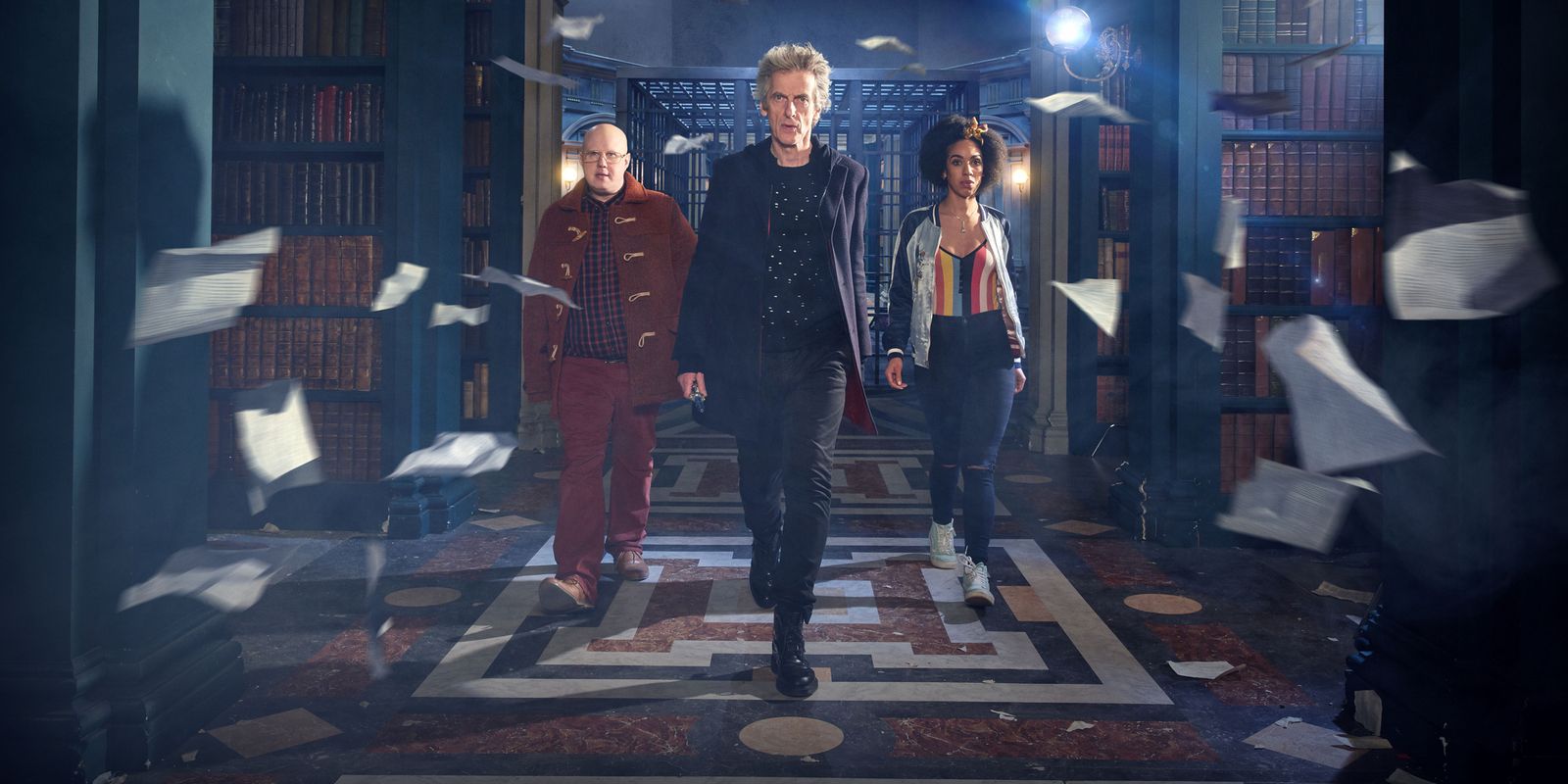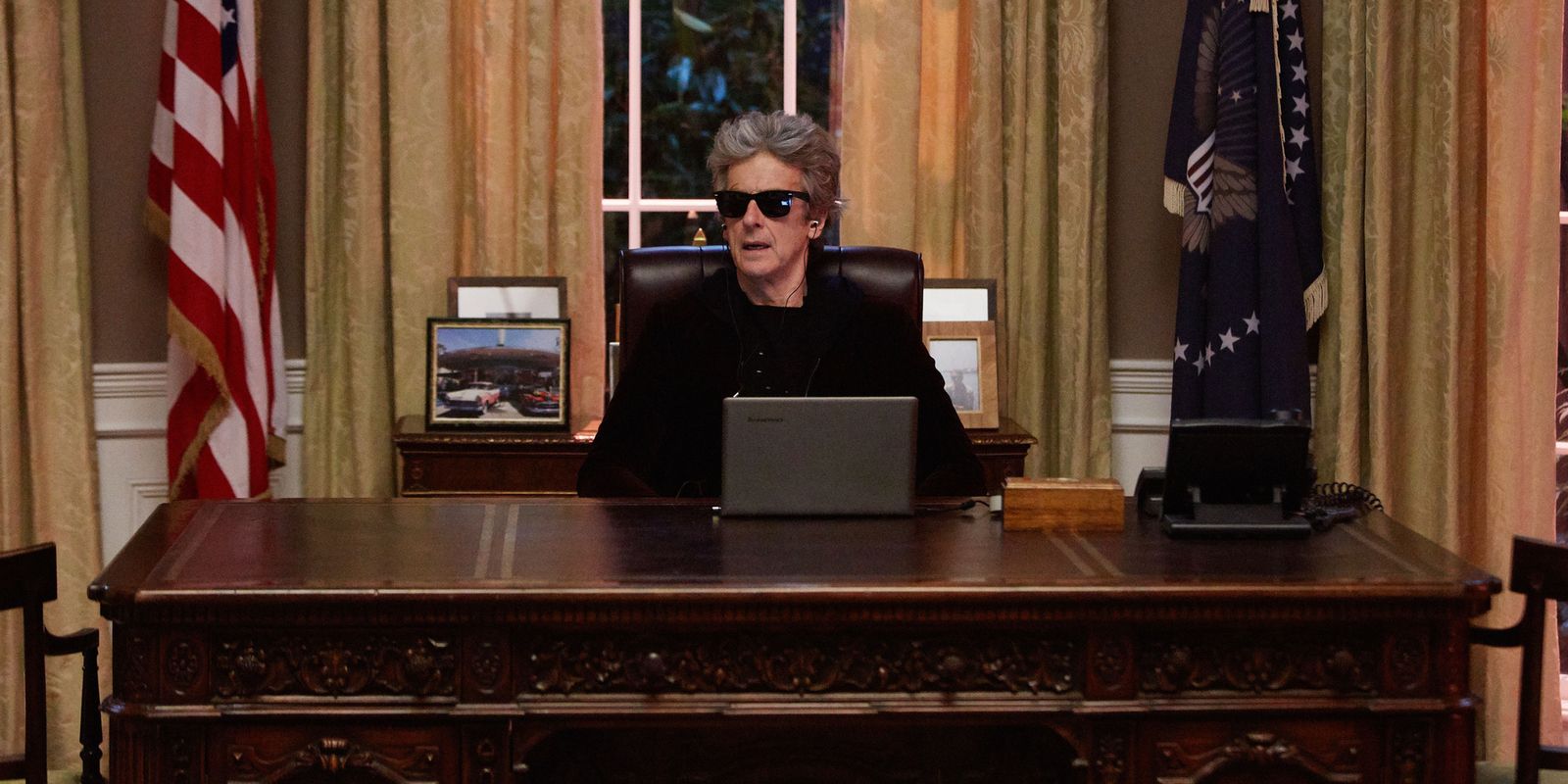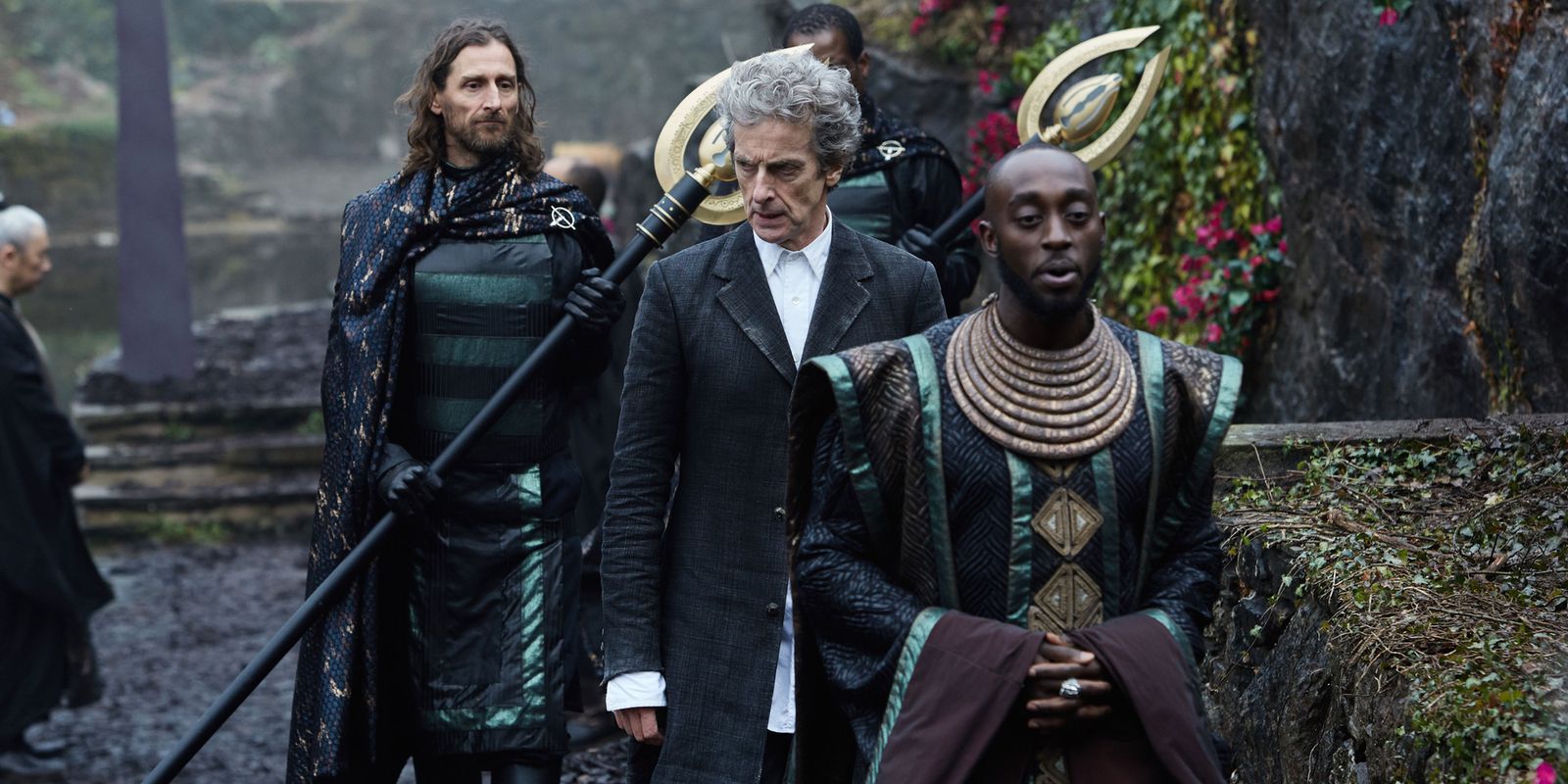Doctor Who threw fans an intriguing curveball last week, when it was revealed that after losing his sight due to exposure to the vacuum of space, the Doctor was still blind despite claiming to have technology capable of restoring his vision. Normally, when the Time Lord displays such telltale signs of wear and tear, a regeneration isn't too far around the corner. But is that all Steven Moffat and the rest of this season's writers had in mind when they hit their title character with this particular obstacle?
As 'Extremis' intends to point out, there's a real concern that any weakness shown on behalf of the Doctor would afford whoever (or whatever) resides within the vault the opportunity to turn the tables on their captors and do whatever unspeakable things they're capable of that presumably got them thrown in the vault in the first place. It makes for an intriguing wrinkle in the Doctor's story, especially as it pertains to the final run of Peter Capaldi in the role.
But while the Doctor's visual impairment allows for the series to explore a storyline wherein the lead character is facing a unique challenge that puts him at a rare disadvantage with his adversaries – both those inside the vault and otherwise – it also creates an interesting thread pertaining to the Doctor's relationship with people like Nardole and Bill. Here we see one of the main reasons why Matt Lucas's Nardole was brought along for the ride in season 10, and it has to do with much more that the actor's gift for comedy. Given the extreme nature of the Doctor's condition, he needs someone to confide in, even if it's just to generate intrigue with regard to those he chooses to keep the truth from. In that case, the Doctor's blindness becomes a way for the series to further explore his relationship with Bill, as his reasons for keeping the truth from her speak to the nature of their association and the lengths he will go to protect her.
This time, though, what the Doctor is protecting his newest companion from is the truth, which later becomes a facet of the episode itself as the story line gradually swirls around a mysterious document held by the Vatican called the Veritas and the Truth that its pages contain. The episode's fascination with the truth also plays into the mystery of who is in the vault and why, which it gets around to in a series of playful asides that make the most of Michelle Gomez's wonderfully droll line delivery and Missy's generally twisted sense of humor and demeanor. And since Steven Moffat wrote it, 'Extremis' uses the emphasis on Truth as a reason to twist around its own narrative, promising one answer after another while building toward an inevitable cliffhanger.
Although 'Extremis' is more remarkable for its structure than its story, there are times when the hour gets away with it based on vibe alone. Even more so than the season's trip into horror with 'Knock Knock', the story at hand relies on a pervasive sense of foreboding counteracted with its title character's beyond-steely resolve and unwillingness to give up. That feeling begins with the Doctor using his sonic sunglasses as a paltry workaround to his blindness, and continues to build when the pope stops by with concerns over a document that, when read, causes the reader – even devout Catholics for whom it would be a mortal sin – to take their own life. While all of this is unfolding, Moffat introduces a flashback that reveals how Missy got into the vault in the first place, and that the Doctor's oath is also a life-saving measure to keep the warped Time Lord from being executed.
The hour has fun with its exploration of the Truth and in slowly pulling the rug out from under both audience and character. The reveal that the Doctor, Bill, and Nardole are in a massive computer simulation meant to test possible outcomes for an imminent alien invasion gives Moffat the chance to deliver a handful of delightfully unnerving scenes, culminating with a mass suicide at CERN that's made infinitely weirder with a number-guessing game that helps illustrate just how off everything is before Nardole figures out the whole thing is a simulation and is promptly deleted.
As with the reveal that Missy (or The Master) is in the vault, the revelation that the Doctor is in a simulation and he's emailed his simulated memories to his real self falls a bit flat. There's been so much speculation about the vault's contents that working all the way back to the beginning before actually opening the box's doors to the audience is a little like asking someone to RSVP to their own surprise party. It's a good bet that Moffat will have another surprise once the doors are opened, but as a delivery system for the truth about what's in the vault and a lead-up to a multi-episode arc about a pending alien invasion, 'Extremis' can no more sustain the tension and existential threat it builds with its various mysteries and promises than it can pay them off in a satisfying way.
Still, for an episode that comes dangerously close to "It was all a dream" territory, 'Extremis' manages to avoid being locked in that category by having the Doctor's trip to a virtual reality become a waking nightmare, one that will require the assistance of Missy (or whatever form The Master has taken) in order to survive.
Next: Doctor Who: Oxygen Review & Discussion
Doctor Who continues next Saturday with 'The Pyramid at the End of the World' @9pm on BBC America.



